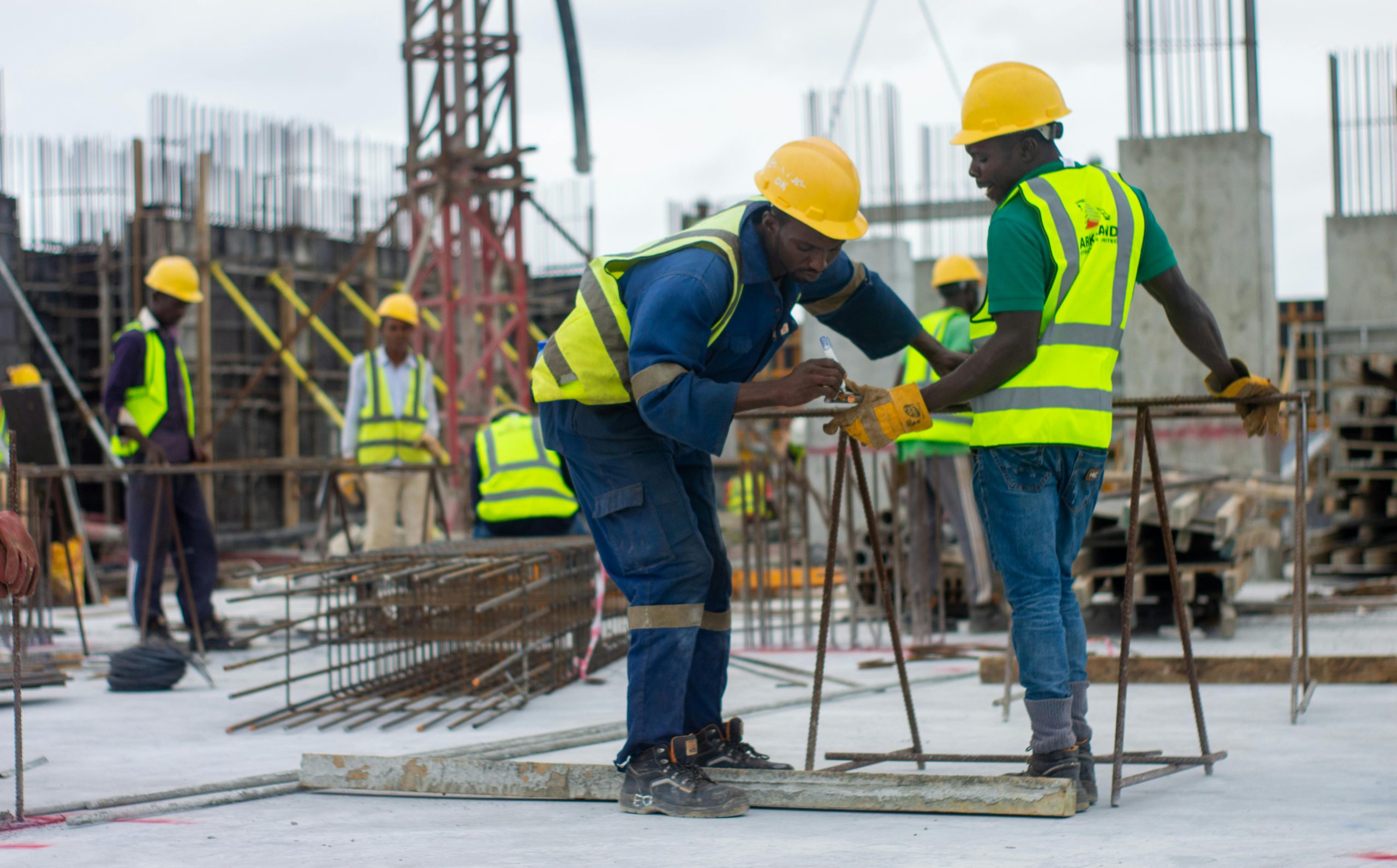Building a dream home is a significant milestone, one that requires careful planning, expert advice, and a deep understanding of the construction landscape in Nigeria. From selecting the right location to choosing materials that can withstand the country’s diverse climate, every step of the process is crucial. This guide, crafted with insights from seasoned Nigerian builders, will walk you through the essential tips to ensure your dream home becomes a reality.
1. Understanding the Nigerian Construction Landscape
Before diving into the specifics, it’s important to understand the unique aspects of building in Nigeria. The country’s construction industry is dynamic, influenced by factors such as economic conditions, government policies, and environmental considerations. Knowing these can help you make informed decisions throughout your project.
Economic Considerations
The cost of building materials and labor in Nigeria can fluctuate significantly due to inflation and market demand. It’s essential to keep an eye on the economy and budget accordingly. Engaging a local construction expert can provide insights into when it’s best to purchase materials or commence construction to avoid unnecessary costs.
Environmental Factors
Nigeria’s diverse climate means that the materials and construction methods used in one region might not be suitable in another. For instance, the humid climate in the southern states requires materials resistant to moisture, while the arid north might need heat-resistant options. Understanding these nuances will help in choosing the right materials and techniques.
2. Selecting the Perfect Location
The location of your home can significantly impact its value, comfort, and convenience. When choosing a site, consider the following:
Proximity to Essential Services
Ensure your home is near essential services like hospitals, schools, markets, and public transport. This not only adds convenience but also increases the property’s value.
Land Tenure System
Nigeria’s land tenure system can be complex, with various types of land ownership, such as freehold and leasehold. It’s crucial to verify the legitimacy of the land title before purchase to avoid legal issues. Consulting with a legal expert or a surveyor can help you navigate this process smoothly.
Environmental Suitability
Assess the environmental conditions of the site. Is it prone to flooding or erosion? Is the soil stable enough for the foundation you plan to build? Conducting a thorough site survey can prevent future construction challenges.
3. Designing Your Dream Home
The design phase is where your vision starts to take shape. Collaborating with an experienced architect who understands the local building codes and climate is vital.
Incorporating Nigerian Architectural Elements
Incorporating traditional Nigerian architectural elements, such as courtyards, verandas, and high ceilings, can enhance the beauty and functionality of your home. These features not only add aesthetic value but also improve ventilation and reduce energy costs.
Prioritizing Sustainability
Sustainable building practices are becoming increasingly important in Nigeria. Consider eco-friendly options like solar panels, rainwater harvesting systems, and energy-efficient appliances. Not only do these choices reduce your carbon footprint, but they can also lead to long-term cost savings.
Optimizing Space
Think carefully about the layout and use of space in your home. Open floor plans are popular, but it’s essential to balance openness with privacy. Ensure that spaces like bedrooms and bathrooms offer sufficient privacy while communal areas remain welcoming and spacious.
4. Budgeting and Financing
Building a home is a significant financial commitment, and careful budgeting is essential. Here’s how to ensure your finances are in order:
Creating a Realistic Budget
Start by listing all potential expenses, including land acquisition, design fees, construction costs, and finishing touches like landscaping. It’s advisable to set aside 10-20% of your budget for contingencies, as unexpected costs are almost inevitable.
Exploring Financing Options
In Nigeria, there are several financing options available, including personal savings, bank loans, and mortgage plans. Research each option to determine which best suits your financial situation. Some Nigerian banks offer specific construction loans, which are released in phases as the project progresses.
Cost-Saving Tips
To manage costs without compromising quality, consider using locally sourced materials, which are often cheaper and more suited to the climate. Additionally, phased construction (building in stages) can help spread out costs over time.
5. Choosing the Right Materials
The materials you choose will affect the durability, aesthetics, and cost of your home. It’s essential to make choices that align with your budget, design, and the local climate.
Durability and Climate Compatibility
Nigeria’s diverse climate means materials must be carefully selected to withstand local conditions. For instance, in coastal areas, materials that resist corrosion and moisture, like treated wood or concrete, are advisable. In hotter regions, materials that reduce heat absorption, such as clay bricks or reflective roofing, are ideal.
Local vs. Imported Materials
While imported materials may offer unique qualities, they can be costly and difficult to replace. Locally sourced materials not only support the Nigerian economy but are also generally more readily available and tailored to the local environment.
Sustainable Choices
Consider using sustainable materials such as bamboo, recycled steel, or reclaimed wood. These options are eco-friendly and can add a unique touch to your home’s design.
6. Hiring the Right Professionals
The success of your construction project largely depends on the expertise of the professionals you hire. Here’s how to ensure you have the right team:
Selecting a Reputable Contractor
Research and choose a contractor with a proven track record in the Nigerian construction industry. Ask for references, check previous projects, and ensure they have the necessary licenses and insurance. A good contractor will also be transparent about costs and timelines.
Working with an Architect
An architect is crucial in bringing your vision to life. They should understand both modern design principles and traditional Nigerian architectural elements. Make sure to communicate your ideas clearly and ensure the architect is familiar with local building regulations.
Engaging Other Specialists
Depending on your project’s complexity, you may need other specialists like structural engineers, quantity surveyors, and interior designers. Each plays a vital role in ensuring your home is safe, cost-effective, and beautiful.
7. Navigating Nigerian Building Regulations
Understanding and complying with local building regulations is essential to avoid legal complications and ensure your home is safe.
Understanding Zoning Laws
Different areas have specific zoning laws that dictate what can be built where. These laws regulate building height, usage (residential or commercial), and setbacks from roads. Consult with local authorities or your architect to ensure your design complies with these laws.
Securing Building Permits
Before construction begins, you’ll need to obtain the necessary permits from your local government. This process typically involves submitting your building plans for approval. Working with professionals who have experience in this area can expedite the process.
Health and Safety Standards
Ensure that your construction site adheres to health and safety standards. This includes providing proper protective gear for workers, securing the site to prevent accidents, and following best practices for construction safety.
8. Managing the Construction Process
Effective management is key to keeping your project on track and within budget.
Regular Site Visits
Frequent site visits allow you to monitor progress and address any issues early. It also ensures that the project is being carried out according to your specifications.
Communication with the Contractor
Maintaining open communication with your contractor is crucial. Regular updates and meetings can help prevent misunderstandings and ensure that any changes are agreed upon and documented.
Quality Control
Ensure that materials and workmanship meet the required standards. Don’t hesitate to bring in a third-party inspector to verify the quality of the construction at various stages.
9. Finishing Touches: Interior and Exterior Design
Once the construction is complete, the final touches will make your house a home.
Interior Design
Your interior design should reflect your personal style while considering practicality. Use durable, easy-to-clean materials, especially if you have children or pets. Lighting is also crucial; consider a mix of natural and artificial lighting to create a warm, welcoming atmosphere.
Exterior Design and Landscaping
The exterior of your home is just as important as the interior. Choose finishes that complement the local environment, and consider adding features like a garden, patio, or driveway. Proper landscaping not only enhances curb appeal but also helps manage water drainage and provides outdoor living space.
10. Moving In: Final Checks and Settling In
Before moving in, conduct a final inspection to ensure everything is as per your specifications. Check that all systems (electrical, plumbing, etc.) are functioning correctly, and that there are no outstanding issues with the build.
Once settled, regular maintenance will keep your home in top condition. Address any minor issues promptly to avoid larger, more costly repairs down the line.
Let’s Build Your Dream Home Together
Choosing the right construction company is crucial to the success of your project. With HighK, you get a partner who is as committed to your dream as you are. We take pride in turning visions into reality, creating homes that are not only beautiful but built to last. Let us guide you through every step of the journey, from concept to completion, ensuring that your dream home is everything you imagined—and more.
Contact High Kit today to discuss your project and take the first step towards building the home of your dreams.


